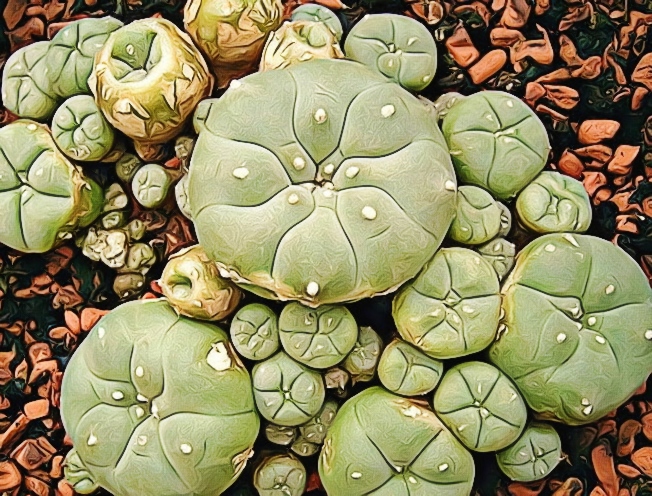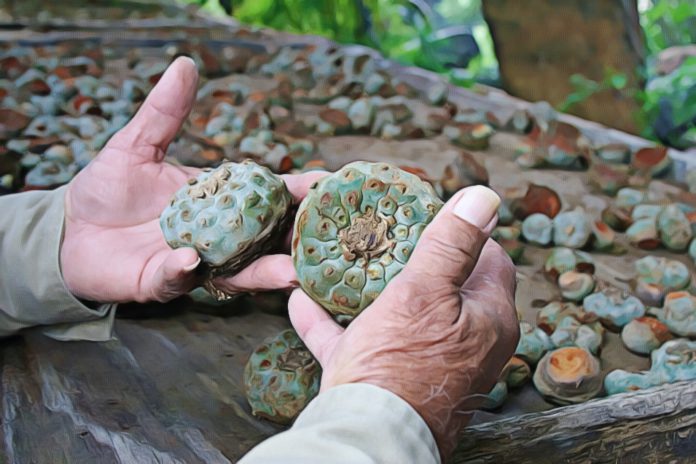Going on a fun adventure with friends can be worrisome when recreational drugs are involved. It’s especially troubling when you don’t know their side effects, legalities, and repercussions. That’s why you should learn more about peyote, one of the most popular drugs among niche hallucinogenic communities.
What is Peyote?
Peyote is an ancient recreational drug said to be some sort of traditional medicine among the Aztecs. It contains a hallucinogenic byproduct called mescaline.
Many Native Americans used peyotes for spiritual purposes because these drugs were considered sacred, especially among the Huichol Indians of Mexico and other churches in the Aztec region. Today, they are still an enduring part of Aztec spirituality, especially in the Native American Church. However, it is also known by drug users for its mind-numbing qualities to trigger smoothing mind trips.

Peyotes take on many nicknames, like cactus, mesc, nubs, and buttons. Although not much is known about these drugs, some drug addicts hoards them to feed their highs for more intense narcotics.
Is Peyote Legal?
According to the United States’ anti-drug ordinances, peyote is listed as a Schedule I Controlled Substance. It means concerned groups, like those involved in law enforcement and drug recovery advocacies, may look into it as a regulated substance. Unfortunately, some minors were caught misusing the drug. The National Institute on Drug Abuse says that six percent of high schoolers reportedly used the drug alongside LSD and other hallucinogens.
Although the percentage of use is low, the Institute does recognize there could be other unrecorded users since peyotes have no legitimate medical use and can be highly addictive. As such, most states chose to ban them.
On the other hand, some federal-governing bodies recognize the drug’s use among the religious in the Native American Church, allowing them to use peyotes as a ceremonial drug. The Church and its religious groups just need to adhere to the general guidelines of the substances as purely rooted in spiritual tradition.
For example, the members can gather around during a ceremonial fire burning, and the peyotes are passed around during chanting and singing. They also make certain no minors are present during the ceremony. Thankfully, some states abide by these exemptions and are focused more on the unlawful use of peyotes and other harmful substances.
What Does Peyote Do?
Peyote is an intense hallucinogen that can distort reality as it affects the neural network and serotonin production, complicating the body’s main senses, body temperature, sex drive, and muscle control. That’s why most drug users would often seclude themselves when taking them to avoid looking suspicious to the public and avoid getting into trouble with the local authorities.
What Happens During Peyote Trips?
You can start to feel the effects within 30 minutes to an hour of taking peyotes. Some tend to be calmer and more reserved during their trips, while others may seem antsier and move more uncontrollably as they harm themselves and others around them. The high can last for three to five hours, but it can be more of a slow burn, which reaches up to 12 hours or more.
The effects of peyotes depend on your metabolism, body mass, and how it is taken. It usually takes just 0.3-0.5 grams to generate hallucinations, and it can become more intense if you take more. Due to the varying effects and euphoric qualities of the drug, most users would take more to sustain their high, leading to more complex side effects. That’s why it can take a lot to overcome addiction to peyotes.
Side Effects of Peyotes
If you are familiar with other recreational drugs, you may see some similar physical and mental side effects with peyotes, which are the following:
- Loss of appetite
- High blood pressure and heart rate
- Insomnia
- Nausea and vomiting
- Excessive sweating
- Uncontrollable movements, especially with arms and legs
- Warped perception of reality (hallucinations)
- Depressive and paranoid episodes
- Distorted sense of pain
- Inability to concentrate

What are the Long-Term Effects of Peyote Addiction?
Currently, there is a lack of research on peyotes and other hallucinogens. But many drug recovery experts state that prolonged use of peyotes can lead to perception disorder and chronic psychosis. In some cases, you may have a hard time recovering and may feel the side effects throughout your life.
What Can I Do to Avoid Peyote Addiction?
Look into the following tips to better understand your relationship with peyotes and how you can consider your future:
- Gain the support of your close friends and family
Surrounding yourself with supportive people can encourage you to take control of your hallucinogen addiction. You may need to cut toxic people out of your life or distance yourself from them if you feel they hinder you on your road to recovery. You may also want to join an accountability group in your community if you feel you aren’t ready to share confidential information with your loved ones.
- Identify your recovery goals
You may aspire to accomplish your goals but have a hard time succeeding because of your addiction. For instance, you may want to become a professional football player but can’t apply for the draft leagues due to your dependence on peyote.
Make it a point to identify concrete goals and break them into smaller tasks to have a set timeline for yourself. Remember to not be upset if you fail to miss any dates since your priority is long-term recovery.
- Avoid emotional triggers
Emotions can be a powerful source of impulsive choices, making them at risk for triggering getting into drugs for instant gratification. That’s why it’s important to know what gets you riled up emotionally since knowing these triggers can allow you to control your state of mind and seek professional help to address them.
- Develop a healthy lifestyle
Your drug dependency can affect how you look at your health and well-being. For instance, you may take peyotes as a way to curb your hunger when you actually need to eat something. To combat these toxic habits, get yourself into a balanced diet and exercise routine.
- Don’t be discouraged by relapse and keep going
It’s normal to fall back into your old ways, but you shouldn’t use them as excuses to ignore your recovery milestones. Instead, take relapses as harsh lessons to be learned and continue to become a better, healthier you.
- Consider moving to a safer, more uplifting community
Where you may be currently living may not be a conducive environment for healing, especially if it’s near where you can access recreational drugs. It’s crucial to find a new home, preferably somewhere near an addiction recovery center, to ensure you can get the help you need while avoiding your old ways.
- Seek professional help for your mental health issues
Due to the range of mental side effects recreational drugs can have on your brain, it’s best to seek assistance from psychiatric professionals and drug recovery experts to guide you through your recovery. This way, you can cultivate a good mindset as you take on life’s daily challenges.
Conclusion
Peyotes and other recreational drugs can be harmful to your welfare, especially if taken excessively. Fortunately, you now know more about them and have a better understanding of what it takes to recover. All you have to do is find local professionals in your area who specialize in drug addiction to ensure you and others you know can get the help needed.
Source:
https://www.drugabuse.gov/publications/drugfacts/hallucinogens
















